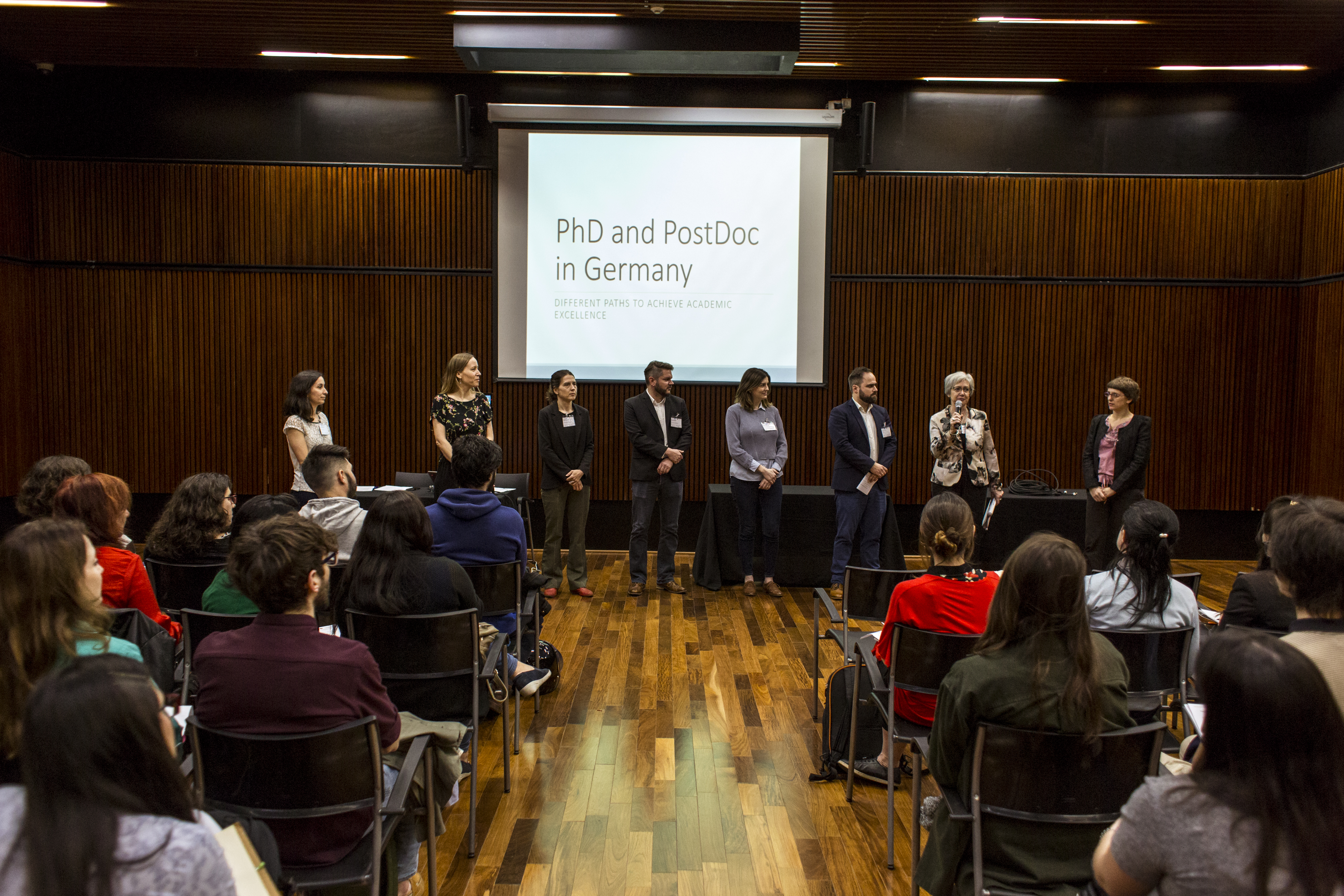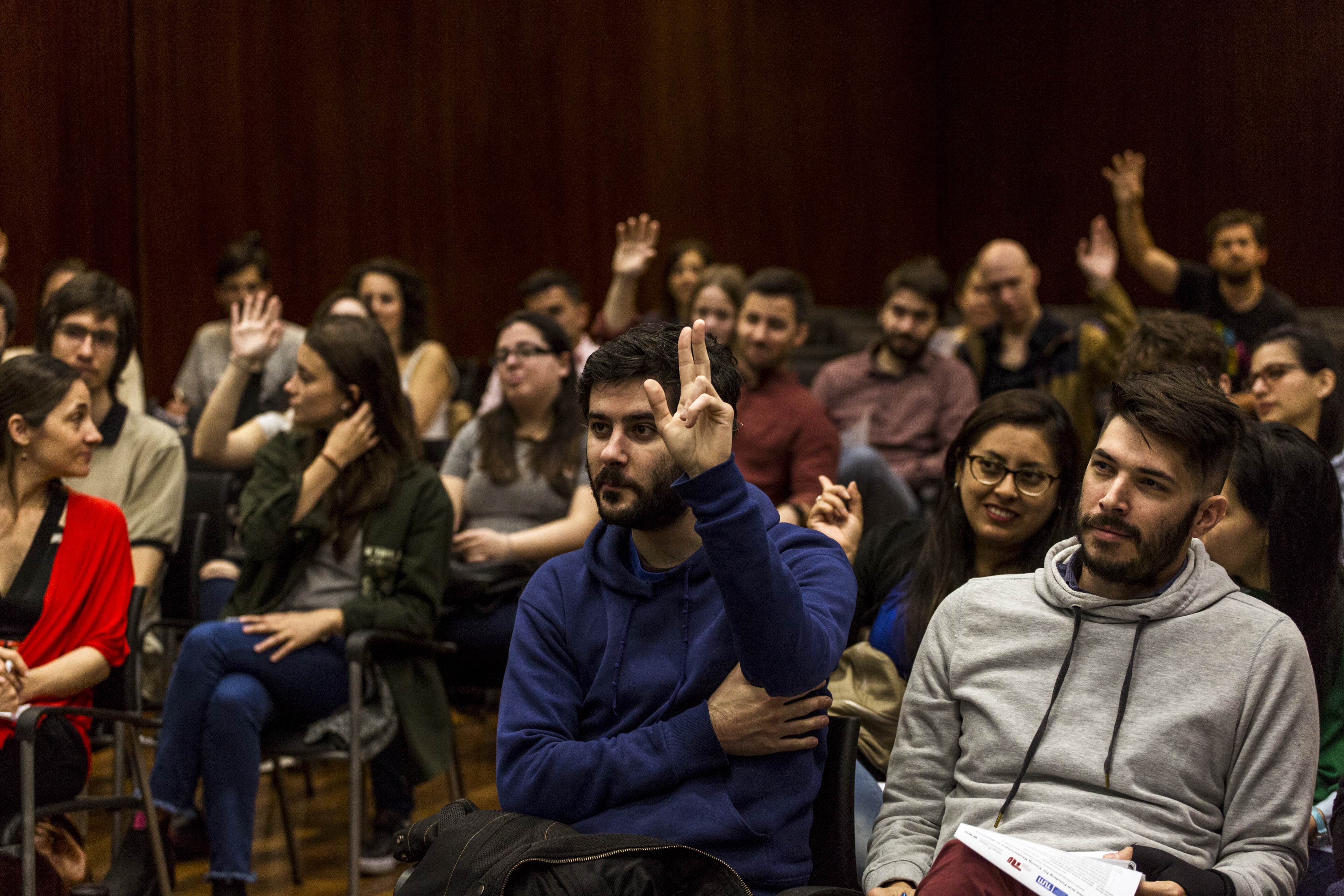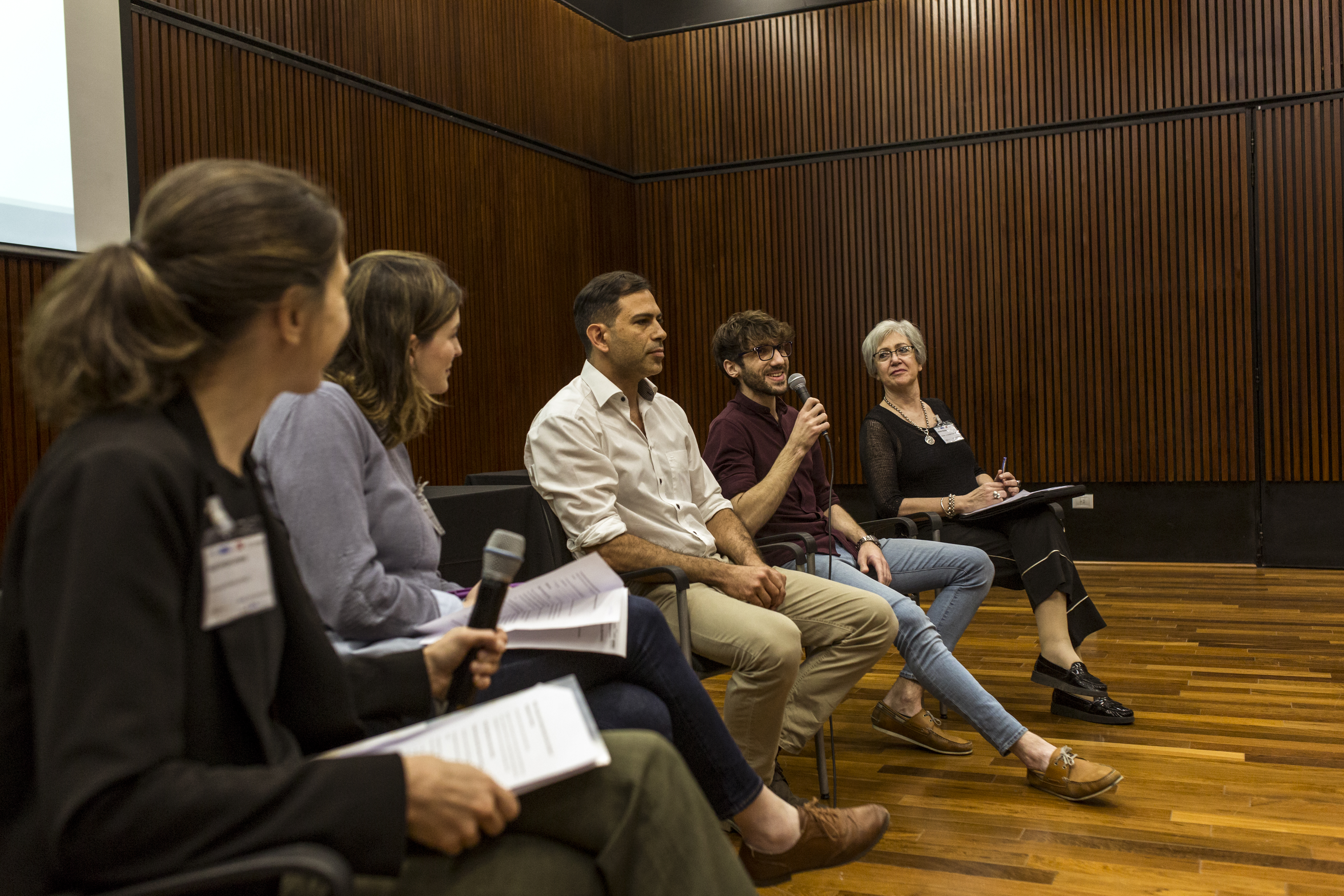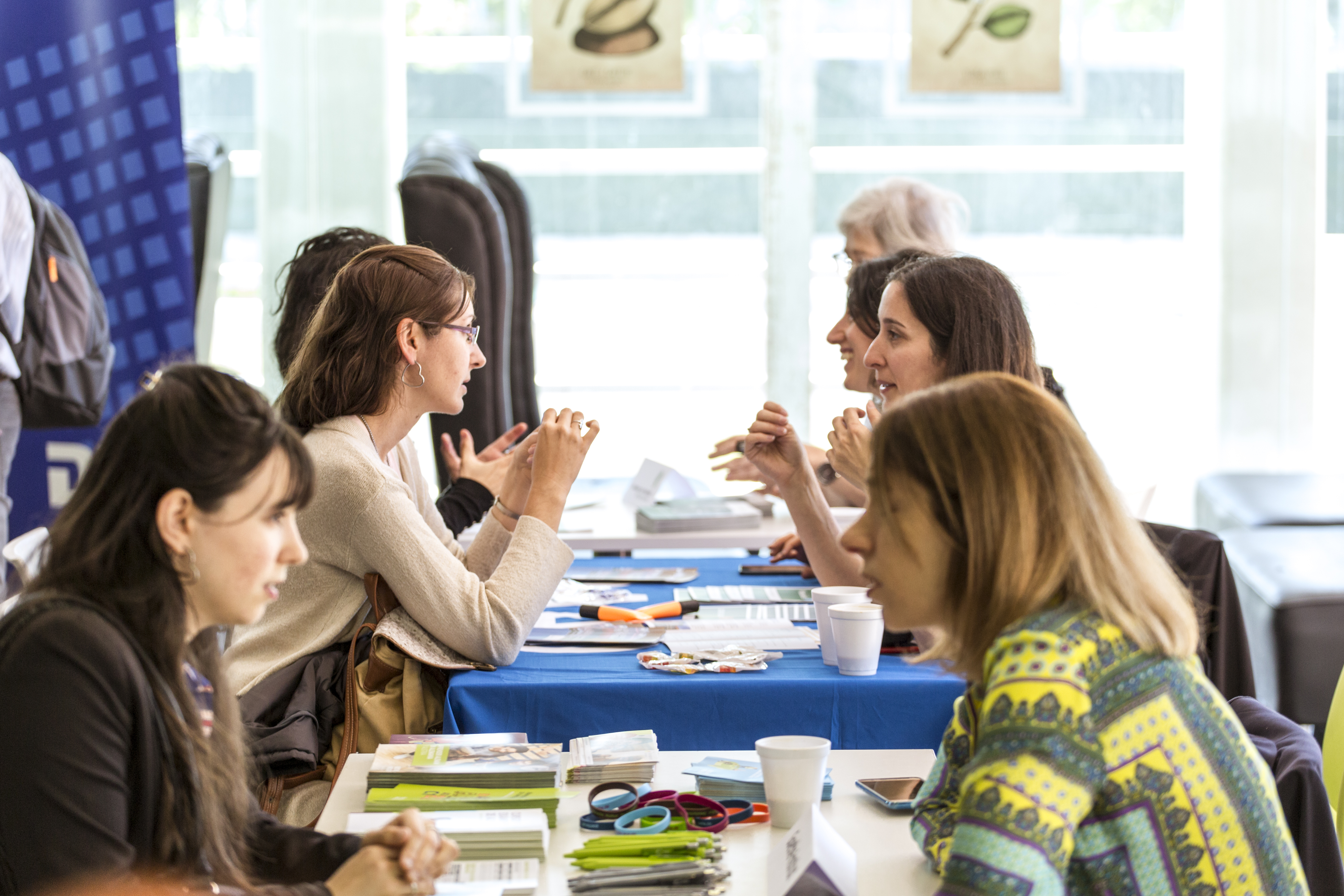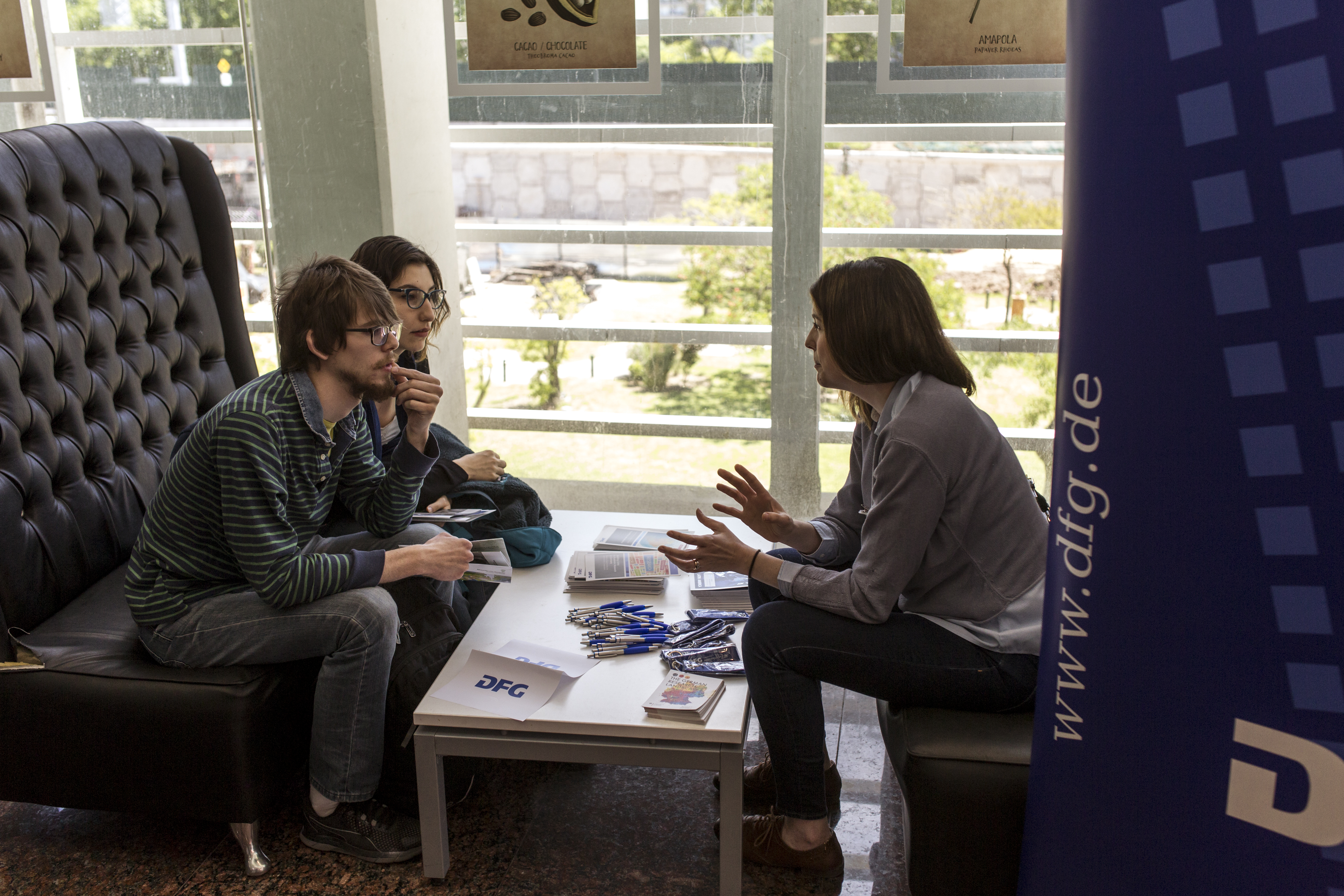Sharing and Acquiring Knowledge: Research Trips Have Long Tradition
(06.11.19) Research work carried out at universities, research centres and within industry in Germany boasts an excellent international reputation. It is no different in Argentina. The country, which historically has one of the best education indices in the region, has a long-standing relationship with German research. In 2019, the two countries celebrated 50 years of research cooperation. The DFG has also played an important role in this history: It has funded more than 160 research and mobility projects with connections to this South American country since 2009, with more than half co-financed by Argentinian funding agencies CONICET and MINCYT.
Speakers from the DAAD, FU Berlin, WWU Münster, TU Berlin, DFG, TUM, AvH and Euraxess introduce themselves
© Sarah Pabst
So it came as no surprise that the information event, which was organised by the Free University of Berlin, the Technical University of Berlin, the Technical University of Munich and the University of Münster with the involvement of the DFG, German Academic Exchange Service (DAAD) and the Alexander von Humboldt Foundation (AvH), was met with a great deal of interest. On the morning of 24 October, around 75 attendees listened to talks on doctoral and postdoctoral research fellowships in Germany, and received individual advice from the participating organisations.
The reports of former researchers and alumni of German universities and research centres are of great interest to early career researchers. Presentations given by the organisations and educational institutions offered valuable information pertaining to study, research, fellowship and funding opportunities. However, it was the first-hand experiences of students and researchers who had also been in Germany that aroused a high level of curiosity. The questions asked ranged from the best strategy for finding accommodation to the traditions and customs of German culture. Among the alumni interviewed by Laura Redondo from the DFG and Anja Grecko Lorenz from the University of Münster was Federico Ibarra, doctoral researcher at the University of Buenos Aires, who was involved in the International Research Training Group "StRATEGy", a collaboration between the consortia of universities in Buenos Aires and Jujuy-Salta-Tucumán in Argentina and the University of Potsdam and the German Research Centre for Geosciences in Germany. The project, with dozens of doctoral researchers and researchers in the field of geosciences from both countries taking part, involves the exchange of students in both directions and is the first initiative of its kind to be undertaken in cooperation with Argentina.
The country, which demonstrates a strong interest in German research, was also the host of an event organised by the DAAD and the German Embassy. The symposium "Humboldt y las Américas" ("Humboldt and the Americas") brought together researchers from the two countries to explore Humboldt's travels on the American continent from a research perspective. His discoveries, driven by scientific curiosity, played an influential role throughout the world and reduced the gulf between America and Europe, which at the time seemed even further apart than they do today.
